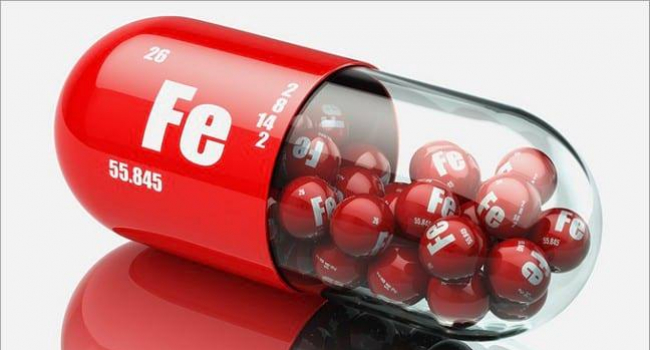- Latest news▼
-
16:41, April 15 Cell: in carriers of defective BRCA2 gene, sugar consumption increases cancer risk

-
15:04, April 15 305 cases of measles recorded in Armenia so far in 2024

-
14:38, April 15 Food and Environmental Virology: tea contributes to effective coronavirus control

-
12:41, April 15 Daily Mail: vitamin A, B3 and E supplements can be dangerous

-
10:56, April 15 Diabetes Care: evening physical activity is good for the heart

-
08:27, April 15 Women are more susceptible to blood loss and death during bypass surgery than men, researchers say

-
18:42, April 13 WHO: Nigeria pioneers revolutionary meningitis vaccine

-
16:43, April 13 One-third of women experience menstruation-related migraines, most often during premenopause - study

-
14:37, April 12 Pediatrics: Hypoglossal nerve stimulation implant helps with sleep apnea

-
12:13, April 12 Health minister: Simulation educational center will be created, assisted reproductive technology capacity will increase in Armenia

-
17:03, April 11 BMJ: antidepressant injection 4 times reduced risk of severe postpartum depression

-
11:35, April 11 Health minister: Number of hard-to-reach medical services within state funding scope increased in Armenia in 2023

-
16:10, April 10 Breathing therapy, which is so popular in the world, is starting to spread in Armenia

-
21:36, April 9 Frontiers: sun exposure destroys skin microbiome

-
17:24, April 9 EClinicalMedicine: depression increases the lethality of breast cancer

All materials
Use of proton pump inhibitors and risk of iron deficiency: a population‐based case–control study

Background
Hypochlorhydric states are an important cause of iron deficiency (ID). Nevertheless, the association between therapy with proton pump inhibitors (PPIs) and ID has long been a subject of debate. This case–control study aimed to investigate the risk of ID associated with the use of PPIs using the UK Clinical Practice Research Datalink (CPRD) database.
Methods
Cases were patients aged 19 years or older with first‐time diagnosis of ID between 2005 and 2016 (n = 26 806). The dates of first diagnosis of ID in cases defined the index dates. For each case, one control was matched by age, gender and general practice. A PPI “full” user (PFU) was defined as a subject who had received PPIs for a continuous duration of at least 1 year prior to the index date. A PPI “limited” users (PLU) was a subject who intermittently received PPI therapy. A PPI non‐user (PNU) was a subject who received no PPI prescriptions prior to the index date. The odds ratio of ID in PFU and PLU compared to PNU was estimated using conditional logistic regression.
Results
Among cases, 2960 were PFU, 6607 PLU and 17 239 PNU. Among controls, 1091 were PFU, 5058 PLU and 20 657 PNU. Adjusted odds ratio of ID in PFU and PLU compared to PNU was 3.60 (95%CI, [3.32–3.91]) and 1.51 (95% CI, [1.44–1.58]). Positive dose–response and time–response relationships were observed.
Conclusions
Chronic PPI use increases the risk of ID. Physicians should consider this when balancing the risks and benefits of chronic PPI prescription.
Follow NEWS.am Medicine on Facebook and Twitter
- Video
- Event calendar
- Archive
- Most read
month
week
day
- Breathing therapy, which is so popular in the world, is starting to spread in Armenia 1762
- Frontiers: sun exposure destroys skin microbiome 1334
- EClinicalMedicine: depression increases the lethality of breast cancer 1333
- FEV: Black tea inactivates SARS-CoV-2 in saliva 1331
- Armenia to define person’s right to refuse organ donation after death 1303
- BMJ: antidepressant injection 4 times reduced risk of severe postpartum depression 1084
- Health minister: Number of hard-to-reach medical services within state funding scope increased in Armenia in 2023 1054
- Pediatrics: Hypoglossal nerve stimulation implant helps with sleep apnea 950
- Health minister: Simulation educational center will be created, assisted reproductive technology capacity will increase in Armenia 918
- WHO: Nigeria pioneers revolutionary meningitis vaccine 749
- One-third of women experience menstruation-related migraines, most often during premenopause - study 727
- Women are more susceptible to blood loss and death during bypass surgery than men, researchers say 377
- Daily Mail: vitamin A, B3 and E supplements can be dangerous 361
- Food and Environmental Virology: tea contributes to effective coronavirus control 358
- Diabetes Care: evening physical activity is good for the heart 331
- Find us on Facebook
- Poll





